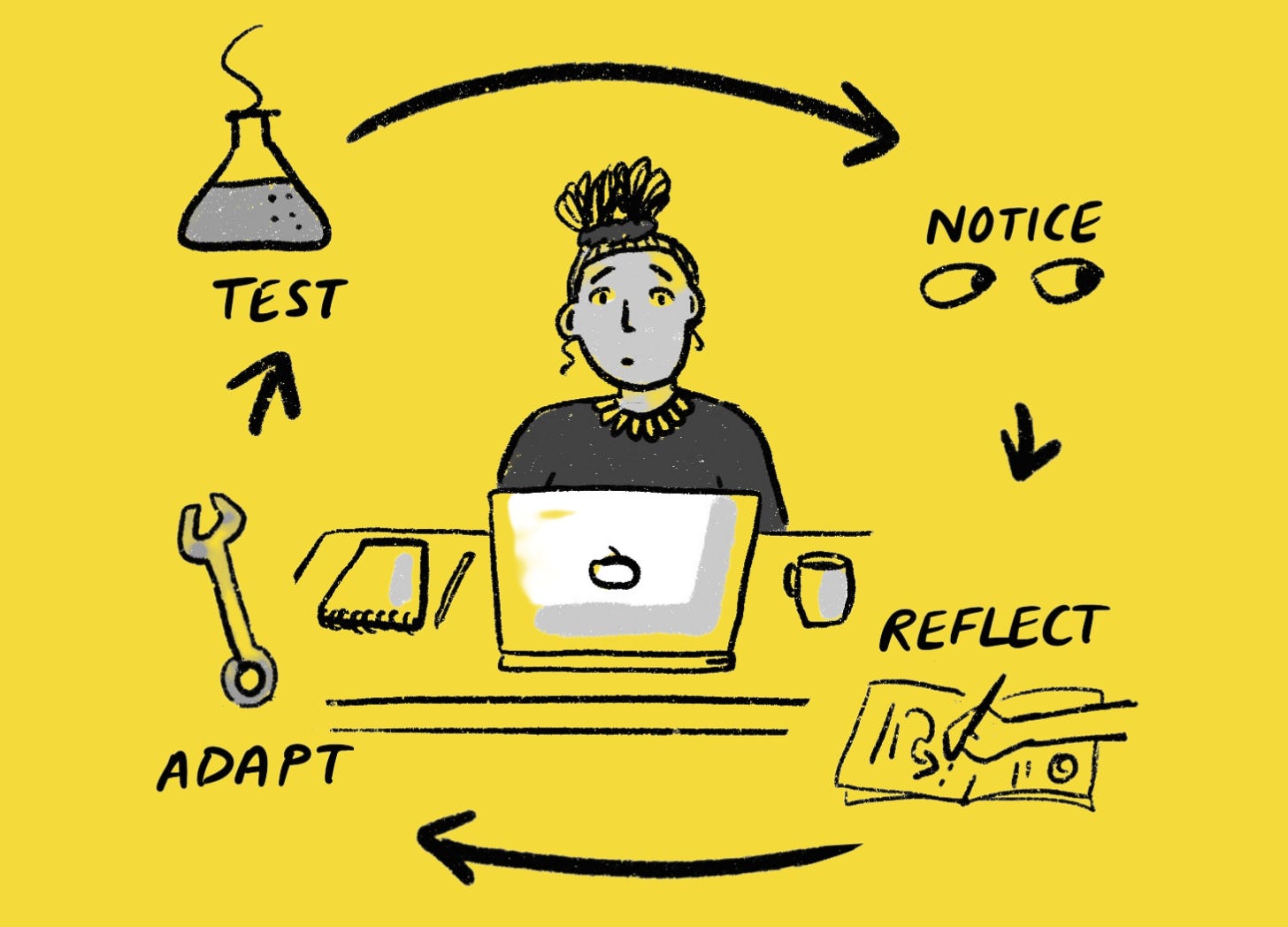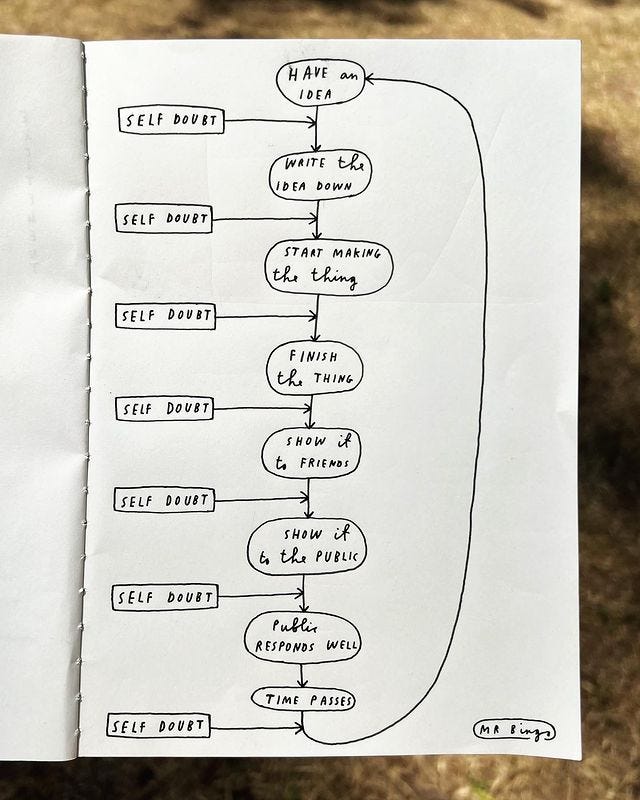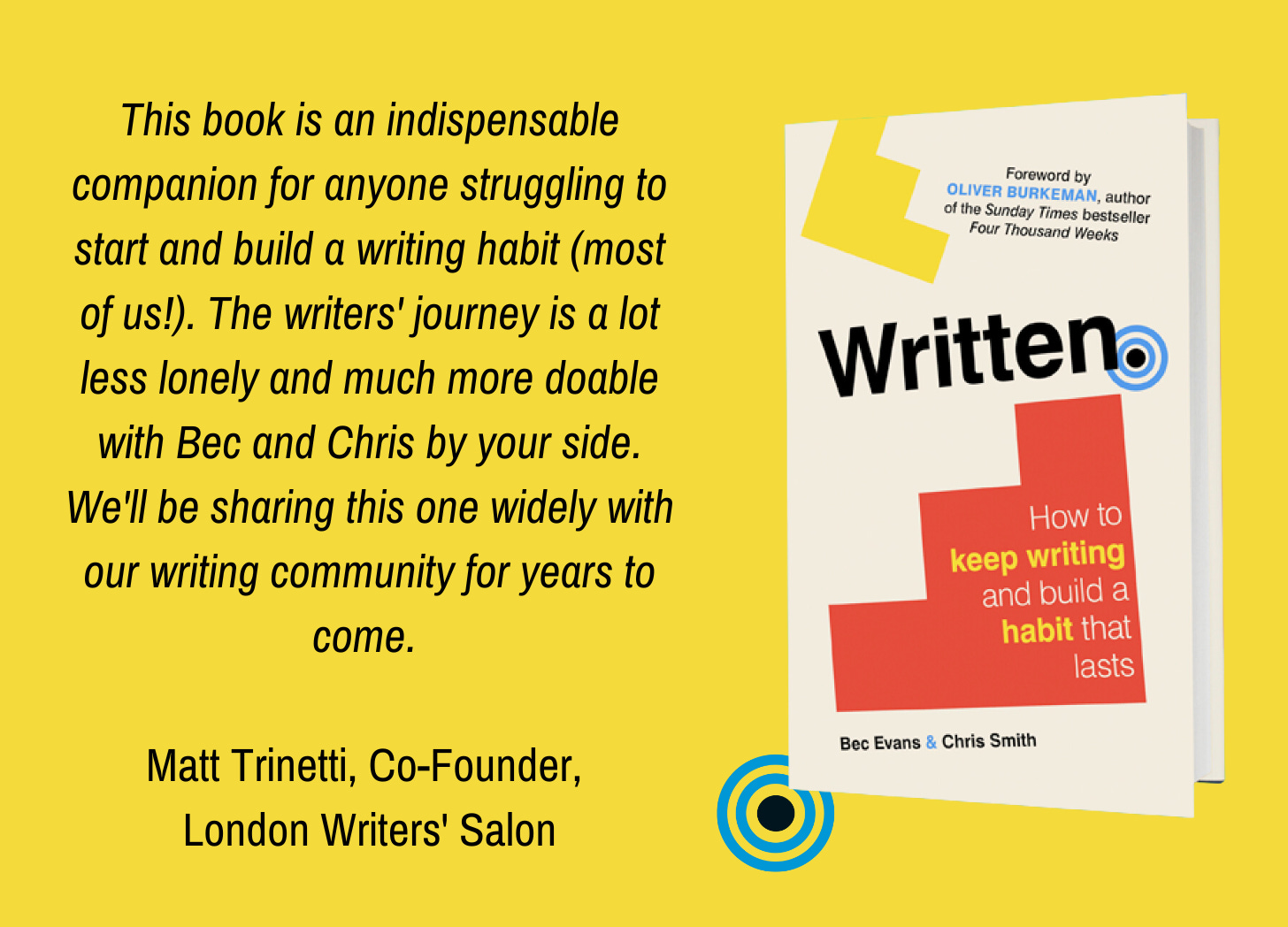There’s one very quotable quote that we tend to say a lot and it’s this one from Ellen J. Langer who’s a psychology professor at Harvard:
‘The rules you were given were the rules that worked for the person who created them, and the more different you are from that person, the worse they’re going to work for you. When you’re mindful, rules, routines and goals guide you; they don’t govern you.’
We set up this Substack as a way to dig into some of the key themes of our book Written. Last month was about the first chapter, Break the Rules: Because they were written for someone else. In that chapter we explore how we fall into unhelpful, fixed patterns of thinking and behaviour about our writing. Sometimes we fall into these patterns on our own. Other times we follow the well meant ‘advice’ of others assuming it will work for us. We wrote about this last week.
This month we’re on to chapter two of the book: Make the Rules: That work for you. This chapter is about how to find the writing habits and routines that work for your life through the simple act of noticing. Writing in a more intentional, mindful way is central to our approach and it’s why we call ‘noticing’ your writing superpower.
How to notice
Why is noticing important? If you don’t know the things that help you write and the things that hinder, you’ll always struggle to act and adapt. Noticing gives you the power to change your behaviour. It’s why in our book and in our coaching we ask you to notice things like how you use time, how you set goals, how you get distracted and what keeps you motivated.
Noticing is simple and shouldn’t take much time. Don’t think of it as ‘another thing’ you have to do. Ask yourself three little questions at the end of every writing session:
What went well?
What didn’t go so well
What will I change for next time?
If you think noticing and mindfulness sound a bit wishy washy, think of it instead like you’re conducting an experiment and building up a data set on you.
If you haven’t heard of Langer’s work, we’d thoroughly recommend that you read her book Mindfulness or if you want a shortcut, watch her PopTech talk. It may have profound affect on you writing and indeed, your life.
Image credit: Cara at Graphic Change for #WrittenTheBook
We love this illustration about ‘process’ by Mr Bingo who’s very funny and often very saucy so not everyone’s taste!
Substack - what do you think?
We’re really enjoying having our newsletter on Substack and after years of putting it off, writing one a week. We’re still playing around with the format but we’d love to know what you think? Hearts and comments welcome!
If you’re interested, we suggest you read Emma Gannon’s brilliant two pieces on Substack.
How I made Substack my job (accidentally)










Gearing up to rebuild a long lost writing habit, so this is a great help. I’m really hopeful that Substack could, for a while at least, be the new nice place to hang out online, so hoping you’ll keep this up!
And MrBingo is bang on the money too.